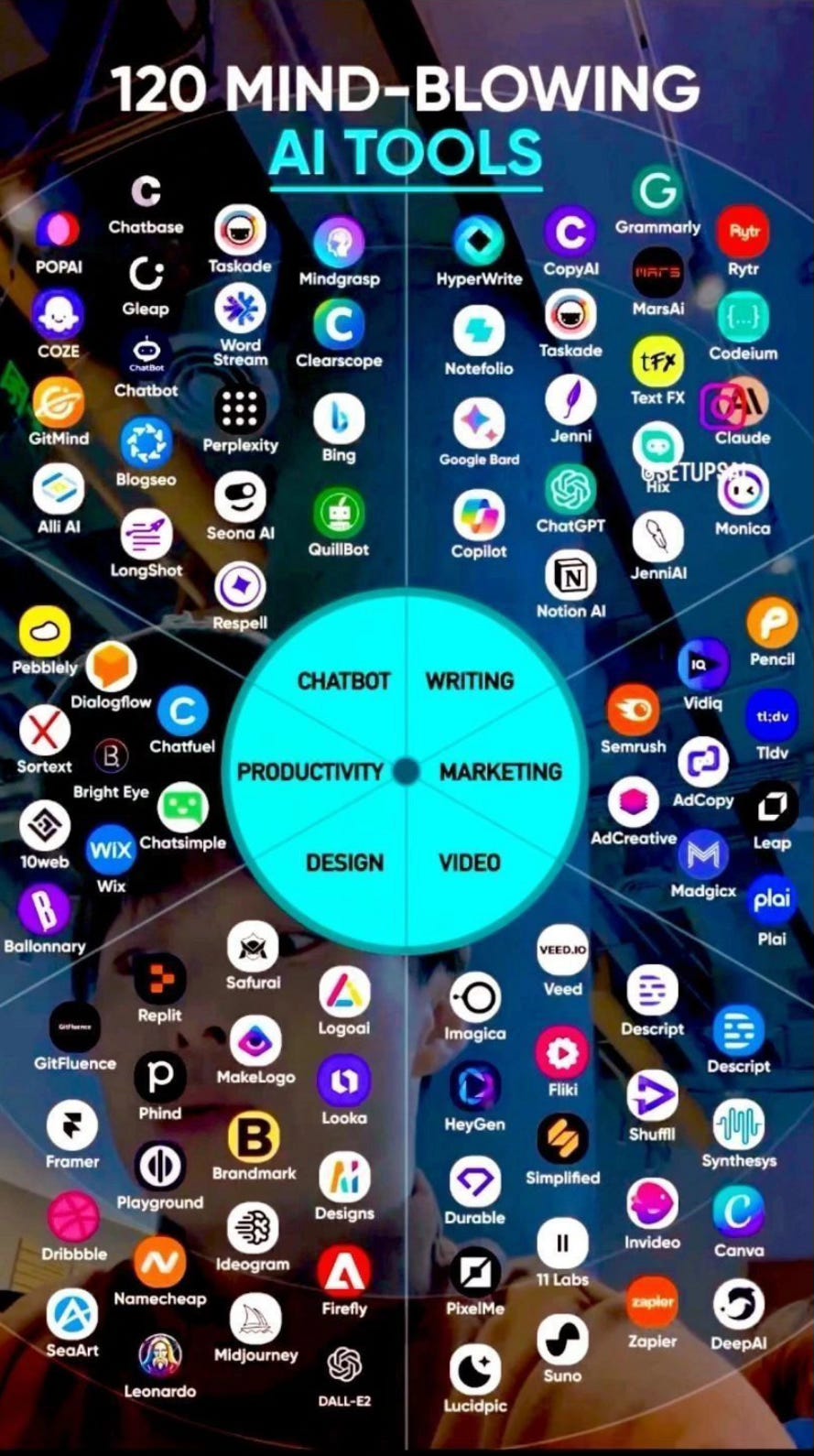Drowning in AI Tools? Here's Your Life Raft
The no-BS guide to choosing AI tools that actually make you money (and ditching the ones that don't)
Can we talk about the absolutely wild world of AI tools right now? I've been testing these things since GPT first blew up, and wow - they're everywhere. Like, everywhere. And while that might sound awesome, I'm starting to think we need to pump the brakes a bit.
LinkedIn for example, is full of posts telling you which AI tools you should learn, and every week (if not every day) there’s a brand new list being shoved in your face.
My take on it: AI is awesome! But, as someone running a small business or doing freelance work, you don't need 50 different AI tools to get stuff done. Actually, having too many is probably making your life harder, not easier. Every time you sign up for a new tool, you've got to figure out how it works, fix the inevitable problems, and somehow fit it into your day. That's time you could spend, you know, actually making money.
Many of these tools are just GPT with a new coat of paint. They take the same underlying AI model, tweak a few things, and market it as something groundbreaking. Sure, some tools offer genuine value with automation and specialisation, but many are just repackaging existing AI capabilities and slapping a hefty price tag on them.
Want to know what really bugs me? The mental drain of juggling all these tools. Your brain gets fried trying to remember which AI does what, and suddenly you're less productive than before. And don't get me started on the costs - those "just $19.99 a month" subscriptions add up fast. Before you know it, you're dropping serious cash on five different tools that basically do the same thing. Not to mention that the “free” version or the “basic” package (at $20/mo) barely covers the quality or quantity of content you need to produce. The other thing is this: paying for the tool is just the beginning, you need to account for the API costs for integrating it with your various platforms or social media accounts.
So here's what I suggest: before you whip out your credit card for the next shiny AI tool, ask yourself:
Do I actually need this, or am I just getting caught up in the hype?
Will this solve a real problem I have, or is it just cool to have?
Be honest - will I actually take the time to learn how to use it properly?
Could one good tool replace three mediocre ones?
Before we dive into specific tools, let's talk about something crucial: knowing where your audience actually hangs out. Look, I see too many people jumping on every social platform and buying tools for each one without stopping to think if that's where their customers are. For example, if you're in crypto, you'll find your people are mostly on X and YouTube - that's where the real conversations happen and where detailed analysis videos thrive. But if you're running a local bakery? Instagram and TikTok might be your sweet spot because they're visual platforms perfect for showing off those gorgeous pastries. LinkedIn is your goldmine if you're a business, executive, or career coach. Why? Because that's where your potential clients are already thinking about their professional growth. Plus, LinkedIn's algorithm loves long-form, thoughtful posts about professional development and leadership - exactly what coaches excel at creating. Instagram works really well for life coaches, wellness coaches, and mindset coaches.
Now, for the actual tools. ChatGPT is great for quick content, but I've found Claude (from Anthropic) to be a game-changer for more nuanced, professional writing. Perplexity is my go-to for research - it's like having a super-smart research assistant who can fact-check everything. For managing multiple AI tools, Poe has been surprisingly useful - it lets you access different AI models in one place, which saves time and money.
If you're handling sensitive client information or want more control over your AI-generated content, Venice.AI might be worth the investment since they prioritise data privacy and don't store your content in their training data (unlike some bigger names in the space that have been less transparent about how they use your inputs). They’re also doing some interesting things with AI-powered video creation, though it's still early days. I pair that with Canva's AI features for quick graphics and designs.
For the backend stuff, Notion AI and Zapier are worth every penny - they automate those tedious tasks that eat up your day. Otter.ai is great at AI transcription for meetings and content creation. Buffer's okay for scheduling posts, but here's a pro tip: look at platform-specific tools too. Meta has its own scheduling tool and so does LinkedIn, and it that works better for their platform than generic schedulers. YouTube needs its own specialised approach with tools like TubeBuddy or VidIQ.
My tip: Start with ONE platform where your ideal clients hang out most. Master that before expanding. Remember, you don't need all these tools at once. Start with identifying your primary platform based on your business type and audience, then pick the tools that specifically serve that platform. You can always expand later when you've got a solid foundation and actual demand for more.
Hope this helps! Let me know in the comments what AI tool is your favourite 🤩





I love this post. Thanks for sharing.
Very helpful overview. Thank you!